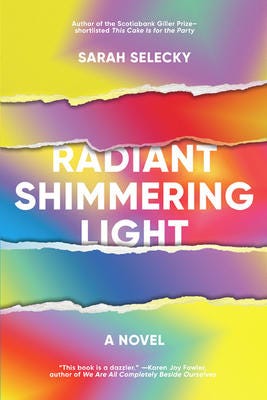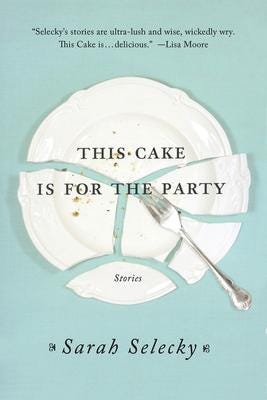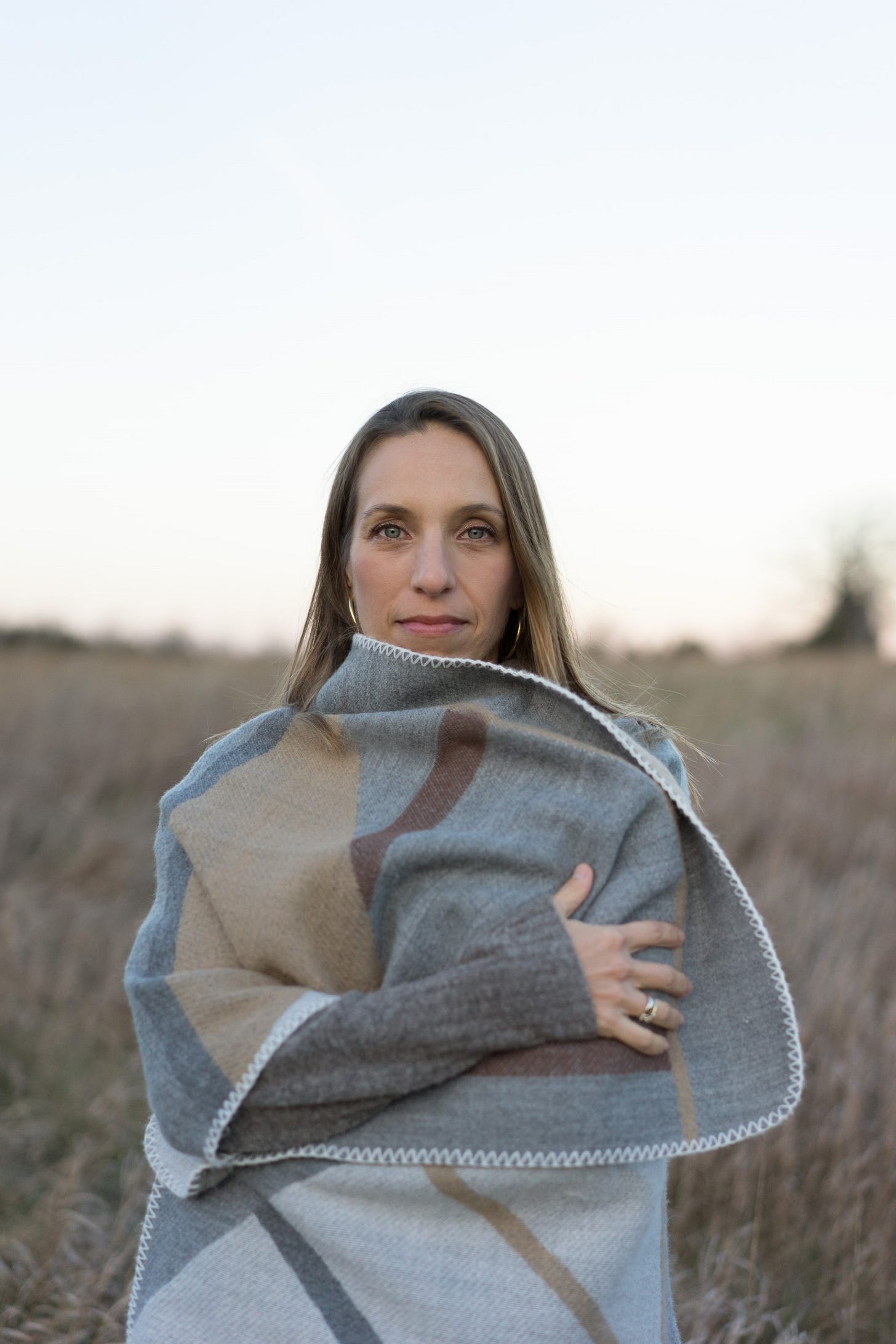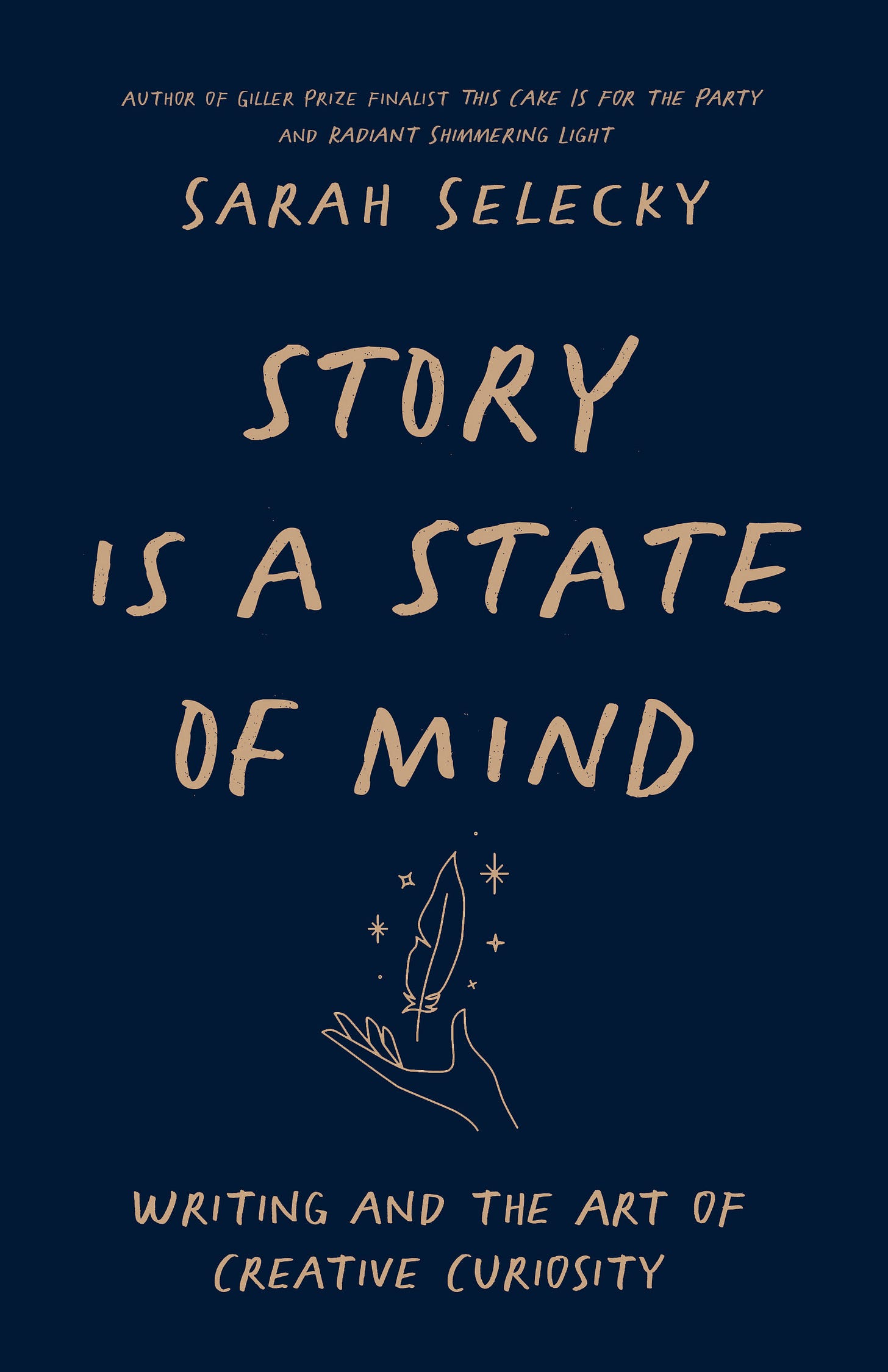Sarah Selecky is the author of Radiant Shimmering Light and This Cake Is for the Party, which was was a finalist for the Scotiabank Giller Prize and the Commonwealth Prize for Best First Book in Canada and the Caribbean, and was longlisted for the Frank O'Connor Prize. The New York Times called the stories "utterly fascinating." She also runs the Sarah Selecky Writing School, a creative community of over 10,000 writers from around the world. Raised in Hanmer, Ontario and Evansville, Indiana, Selecky now lives in Prince Edward County, Ontario.
Her newest book, Story is a State of Mind: Writing and the Art of Creative Curiosity, will publish January 7, 2025 by Assembly Press.
"Through generous counsel, illuminating exercises, and a big helping of magic, Story is a State of Mind by Sarah Selecky shows us how creativity can be cultivated and sustained for a fertile—and joyful—writing process. It also happens to be terrifically well-written. In warm, humorous prose, Selecky gently reconnects us with creative curiosity, asking a fundamental question: What if you approached your writing as play? Read this book, and I promise you will find the answer."
—Emily Urquhart, author of Ordinary Wonder Tales and The Age of Creativity
Describe your writing space. What do you love about it?
I write at a desk on the top floor of my house. The desk sits in front of a window that overlooks a farmer’s field, acres of red cedar “greenbush”, and big skies of Prince Edward County. I love my desk, which was made by a Mennonite family in the area. I love that there’s nothing else in that space, so there are no distractions. It’s very quiet up there.
How important is it to have ‘a room of one’s own’?
It’s crucial for a writer to have a space of her own, even if it’s temporary, so she can turn wild in her creative work outside of her social, familial, and cultural responsibilities. I don’t know if men need this in the same way or not. It’s also very important for a writer to feel connected; solitude is powerful when it is a choice.
Any rules for when you’re in this ‘space’?
A calm mind is a creative mind. Enjoy yourself. Stay curious. If you start to grind and grit your teeth, stop writing. Do not bring that energy to your writing space. Take a breath, and reconnect to your curiosity until you feel that clenching energy release.
What is your writing practice like?
I start with a meditation and a visualization to connect with the project I’m working on, and then I warm up with simple sentences, writing slowly with a fountain pen and paper. If I’m not working on a specific project, I begin my practice by writing a list of words that start with a certain letter – I do this for about 3 minutes. Then I write another list: ten details about things I notice around me. Lists are great warm-ups. They gets me out of my thinking head and into a more receptive state of mind, so I can access my curiosity and that nice blend of conscious-unconscious awareness where my writing flows more naturally.
Do you quantify your process by word count or hours spent writing?
Both, depending on the project and my desired outcome. If I’m generating a fast first draft, I track word count. If I’m working on revision, I count hours. And if I’m stuck or in transition, sometimes I quantify my process by tracking the number of insights I have, instead of word count or time count. Insights could be aha moments, something I’ve read that interests me, or an idea about a character or scene. I track these in my planner weekly, even if I’m not working on a project. Because… you never know!
What is your creative process like?
Non-linear, irrational, fascinating, cyclical, slow. I often forget or underestimate how much rest I really need between projects, and how long it will realistically take me to finish a project. This is probably a self-preserving unconscious forgetting, because if I consciously knew how long something was going to take, and how circuitous my route to clarity and completion, I would probably hesitate before I started anything!
What is the easiest and most difficult part of the process for you?
The easiest part of the process is being in flow. Once I get there, I feel connected to everything and life feels good. The most difficult part is having to stay seated for so long, or standing up at my desk to type. Writing is a sedentary activity, and I feel more like my favourite self when I am moving, dancing, being outdoors, and using my whole body.
Why do you write? What do you love about writing?
I write when I sense that something that exists outside language wants to be expressed in words. I love the way writing transmits a felt experience of presence. That’s the power and the magic of it. Also, I write with scented fountain pen ink; I genuinely love the physicality of drawing my letters and words on paper.
How do you manage writing with other demands on your time?
First, I have to remind myself that time is a concept, and our human experience of time is elastic. I’ve had the experience of one minute feeling like it lasts forever, you know? Remembering that helps. Because when you go through a creative portal, time is irrelevant. You’re in magic time, and that doesn’t correspond to a clock.
Second, I stopped social media. I quit in 2023 to make time to write my new book, and I don’t think I’ll go back. I miss out on a tonne of opportunities, it’s true. But the quality of my attention has improved, so it’s worth it. Third, I put time in my calendar and commit to it. I schedule chunks of time for writing in advance, and then I make email auto-responders and tell my friends and family I won’t be in touch with them until a certain date. I say no to invitations that come up, and I cancel plans if they’re in the calendar. I have learned how to keep strong boundaries around my writing. When I decide that writing is a priority for certain period of time, my decision tends to hold. Unless there’s a genuine crisis where someone is physically hurt and needs my help, I do what I put in my calendar.
“I’ve become more comfortable with my fear of “letting balls drop.” Most of the time, the balls I’m imagining aren’t even real. And when they’re important, balls tend to bounce back.”
Having said that, I could only chunk out three full weeks of writing time over the course of this year, so I wrote most of this book in small bits. I wrote for 1 hour a day, first thing each morning. I admit this was frustrating – but the pages still add up. I did write the whole book, just in smaller pieces over time.
“We are made of stories. Everything we think and understand is a narrative. Unless we’re in the present moment, we’re in some kind of a story. The books we read become who we are, what we think about, what we know to be true, what we think is possible or impossible. For example, if we feed ourselves stories about good vs. evil, we begin to scan our environment for that same structure. And we’ll find whatever pattern we’re looking for. That’s why writing books and stories is so powerful.”
What has influenced you most as a writer?
Exercise. My whole state of mind changes with physical activity – I’m more clear, calm, and open.
Do you want each book to stand on its own, or are you trying to build a body of work with connections between each book?
Oh my goodness, I don’t have that kind of strategy! Fun question though. I sometimes wonder if there will be a big-picture pattern to what I’ve made, when I look back and connect the dots. I just write what I feel like writing when I feel like there’s something that wants to be written, or when there’s something that I need to understand, in and through writing it.
Best advice you’ve ever been given.
You don’t have to be a mother – lots of other people are having kids, you don’t have to.
What does success look like to you?
Being with people I love, in a place I love, doing what I love.
Tell us a few things that would surprise us to learn about you: the person, the writer.
Let’s see… well, I recently harvested the spearmint and peppermint from my garden, dehydrated the leaves in little muslin bags in my InstantPot, and made the most delicious mint tea I’ve ever tasted. Oh, and I have a detailed planning system that tracks my goals and projects along with the phases of the moon – one day I might design a printed planner so I can share the system.
What was a transformative book for you in your life?
The Lion, the Witch, and the Wardrobe by CS Lewis.
Which authors, living or dead, would you most like to discuss writing with?
I’d love to go for a walk in the woods with Mary Oliver. We wouldn’t even have to talk.
Who are your favourite writers writing today?
Eden Robinson, Ruth Ozeki, George Saunders, Sheila Heti and Miranda July.
What books are you currently loving?
I just read The Ministry of Time by Kaliane Bradley and it was wonderful! I couldn’t put it down! I’m excited to read Henry Lien’s forthcoming book, Spring, Summer, Asteroid, Bird. It’s all about the East Asian 4-act story structure: a whole new paradigm from the hero’s journey. I’m also enjoying Four Thousand Weeks: Time management for mortals by Oliver Burkeman. From the title, you’d think it’s a productivity book, but actually it’s the opposite.
If you were a bookseller what 5 books would you hand-sell to readers and why?
Cultish by Amanda Montell. This book researches cults of personality and influence, from Jim Jones to Soulcycle, with a focus on linguistics and cultural studies. Delicious. I’ve given it to countless friends since reading it. It’s eye-opening and super fun to read.
No One Is Talking About This by Patricia Lockwood is a phenomenon. I love it when poets decide to write novels, because they just do whatever they want with form and content, like they’re artists or something. This book is a startling reflection, like looking into a mirror in a waking dream. For readers who want to be enchanted by something totally unusual and true.
The Measure of My Powers: A memoir about food, misery, and Paris by Jackie Kai Ellis. This book is an exquisite ode to the power of pleasure and presence. Ellis writes about her journey from a profound depression to finding her true nature, through reading and cooking. There are recipes included to go along with the stories in every chapter. Beautifully illustrated and designed by the author herself, the pages are a pastel rainbow that echo the colours of macarons. It's a very special book; I’ve gifted this one to several friends, too.
All the Birds In the Sky by Charlie Jane Anders is a story that integrates technology and nature in a way I haven’t seen before. She started writing these as short stories and then those became chapters in the novel, so this is an interesting read for writers who are interested in craft and plot construction. Also, a fresh book for curious and creative sci-fi readers who like weird, innovative stories.
End Times by Michelle Syba is an extremely well-written short story collection that explores themes of ideology, religion, and belief with curiosity and compassion. Syba grew up Pentecostal, and then left her faith and got her PhD in English Literature at Harvard. This is a compelling and intelligent perspective we don’t often get to read in literary fiction. I’d recommend this book to readers who are feeling lost and frustrated about polarization, with a caveat: this book is can expand your tolerance for both/and. It won’t make you feel better about being right.
What advice do you have for writers?
Learn how to calm yourself: if you are anxious or stressed, you can’t access curiosity.
Writing is a solitary activity, but you aren’t supposed to do it alone. Create a writing group.
Watch your linguistics: if you hear yourself saying “I have to write” or “I should write,” know that you’re creating a limiting experience for yourself.
“Your curiosity doesn’t like limits. Change your self-talk to “I get to write,” and you’ll have a more expansive experience. Creativity is expansive: when you go towards that energy, you’re on the right track.”


Thank you Sarah!






It's good to see you on this platform, Sarah. I used your new book for inspiration as I wrote my writing workbook for women, Storying Silence: A Guide to Restoring Voice, Autonomy, and Sovereignty. I agree that good writing comes out of a willingness to allow the soul to wander across the threshold into unknown literary territory.